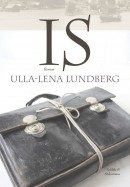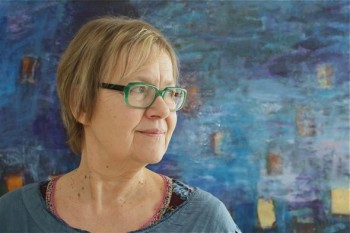Archive for November, 2012
The dead speak kindly
1 November 2012 | Fiction, poetry
Memory, winter and everyday are studied in Tua Forsström’s new collection of poems, En kväll i oktober rodde jag ut på sjön (‘One evening in October I rowed out on the lake’, Schildts & Söderströms, 2012). Introduction by Michel Ekman
I fell through the papers laid aside
I came to a place where I was supposed to stay
for four nights but I stayed four years
Someone said: you have caused the council considerable expense
I said: this is my situation
A brave little cat came to my rescue
I could see what I wanted in the dark
at night and no one saw me
It was like a dream but I wasn’t dreaming
I was not afraid and I could pass through chalcedony
I could pass through quartz crystals
I could pass through sad and sick
On the bottom in the mud coins from many lands lay gleaming
We wish for anything between heaven and earth
All that we see and cannot see and lost
I do not recognise myself, and no one sees me More…
Ulla-Lena Lundberg: Is [Ice]
1 November 2012 | Mini reviews, Reviews
 Is
Is
[Ice]
Helsingfors: Schildts & Söderströms, 2012. 364 p.
ISBN 978-951-52-2987-8
€ 23.25, hardback
Finnish translation:
Jää
Helsinki: Teos & Schildts & Söderströms, 2012. 365 p.
Suomennos [Translated by]: Leena Vallisaari
ISBN 978-951-851-475-9
€ 28.40, hardback
Ulla-Lena Lundberg (born on the island of Kökar, Åland, 1947) is already the author of an extensive list of award-winning books, but her new novel Is (‘Ice’) is undoubtedly her most impressive work. It is written in a classic genre, an epic bound by time and place, in which the sensitive portrayal of characters and details takes a strongly ethical direction. Is describes life in a outer archipelago in the late 1940s, where a young priest arrives with his small family. In his calling he is a man devoted to the Word: helpful, friendly, naïvely unsuspecting in his philanthropy. His wife is cast in a different mould: a practical, at times apparently emotionless survivor, who runs a large household single-handed. The couple becomes part of the community of small islands and its harsh living conditions. At times the ice that shuts the island off from the outside world melts into freedom, only to lapse again into a cold that rudely limits human destinies. Barren nature and a community spirit reverting to early Christianity take the measure of each other in the novel’s dramatic events.
Translated by David McDuff

